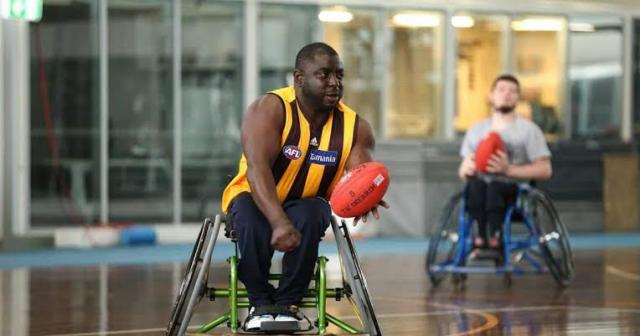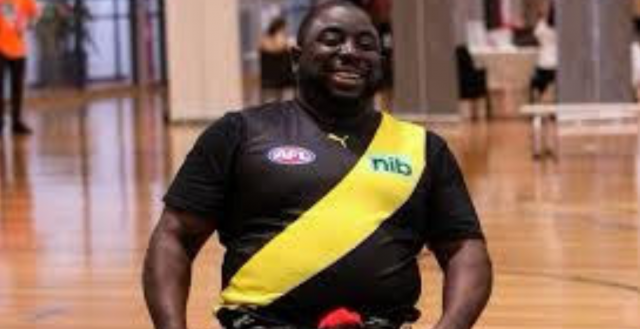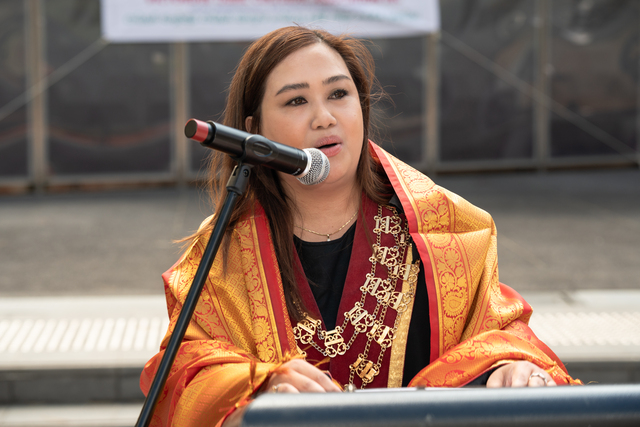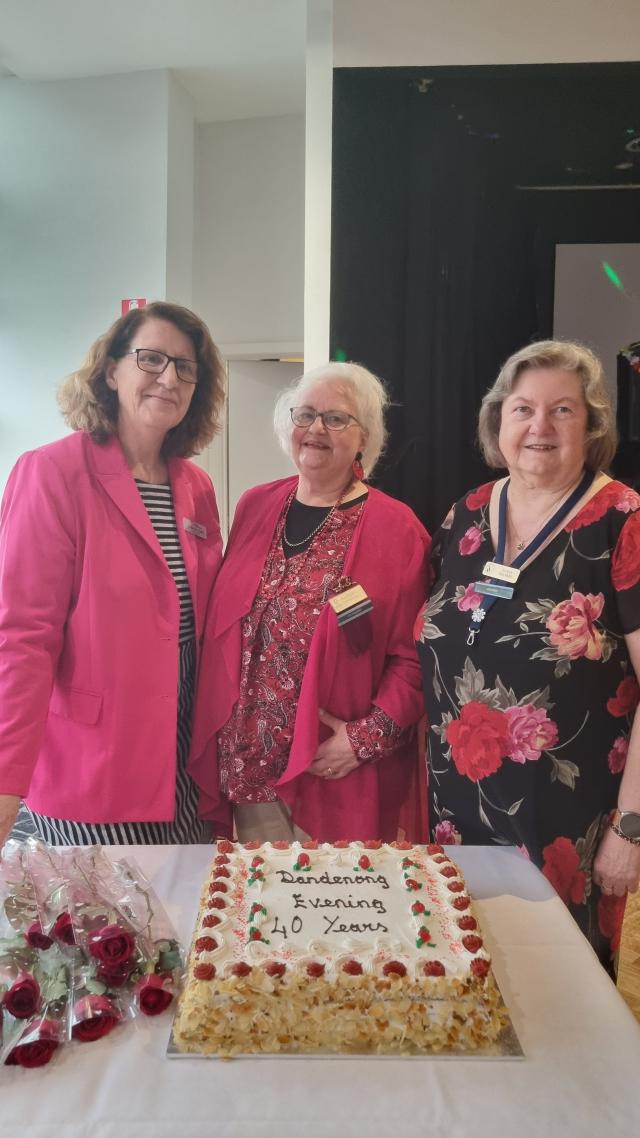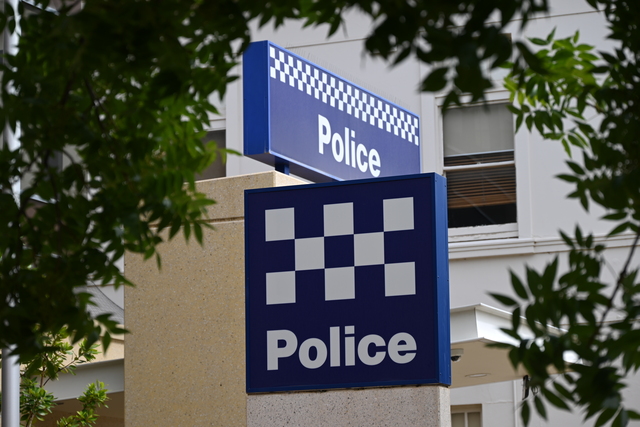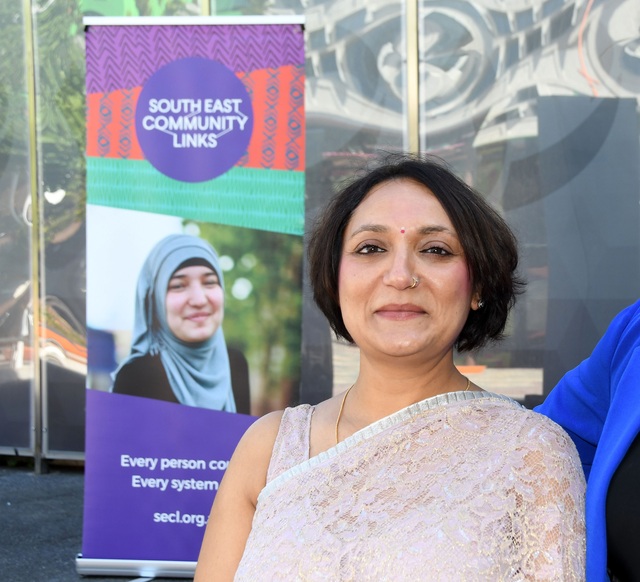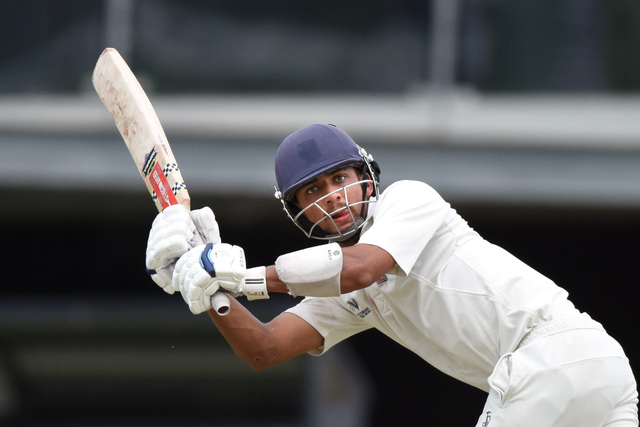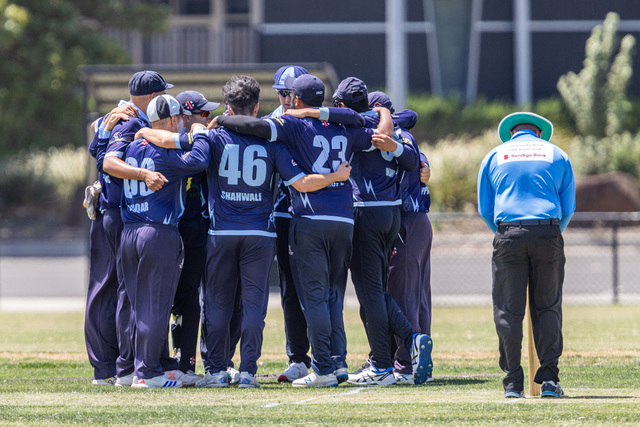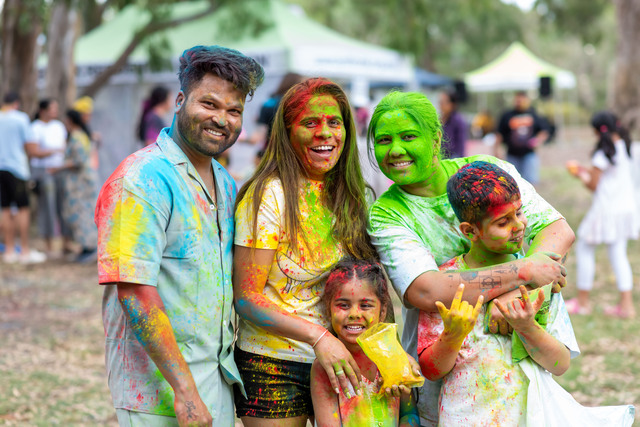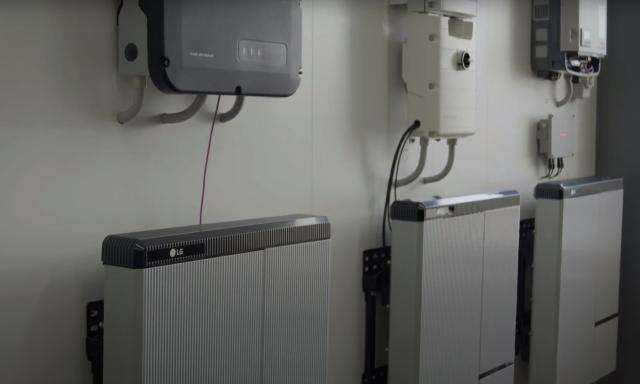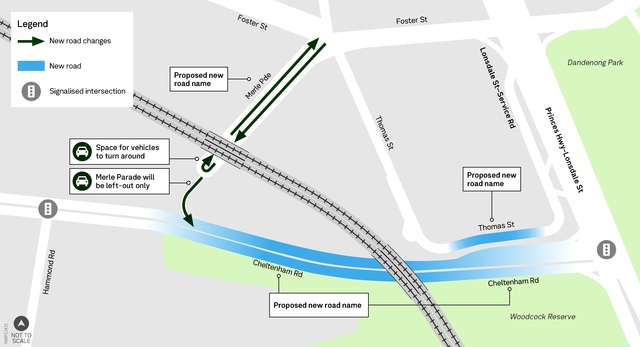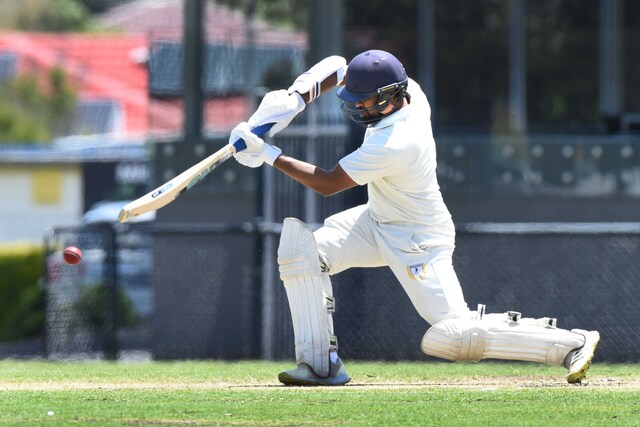Sport rescued aspiring Paralympian and Richmond wheelchair AFL player Peter Ogunyemi and in a roundabout way, it nearly ended it. And then it saved him again. Since arriving in Australia, he has played a smorgasbord of wheelchair sports and gives motivational talks, leveraging off his own experiences to encourage others. When he opens up, his enterprising character is revealed.
It was an action that now Dandenong-based ex-powerlifter Peter Ogunyemi had done each time he had lifted weights since he was introduced to the gym as a teenager.
A simple manoeuvre that every lifter makes with little thought after a bench press: put the bar back on the rack.
But on the day before his event at the 2000 Paralympics, he missed the left rung.
What was supposed to be Ogunyemi’s final lift before he officially broke the world record – 190 kilograms – became the final lift of his career.
215 kilograms of weight fell onto his chest, breaking his elbow and hopes of a gold medal.
It was a near-fatal mistake.
The injuries he sustained may not have been life threatening but in the subsequent six months he fell into a deep state of depression.
Eight years of work conditioning for the event he had primed himself to win had amounted to nothing and he knew there was no-one to blame – except himself.
Ogunyemi was not supposed to be powerlifting on the day prior to his event, but when a “big man” came up to Ogunyemi and said he could lift heavier weights, Ogunyemi was adamant to prove him wrong.
At his lowest points, he was twice rushed to hospital with wounds he had inflicted in separate suicide attempts.
“I just wanted to die because it was hard for me to know I pushed so hard to get to the top and when I was supposed to reap the rewards of my hard work, everything just went by so it was really hard for me,” Ogunyemi said.
“Back home, I was like, ‘I can’t do it anymore’.
“I got through it because I had good parents willing to do anything for me and always there for me, gave me opportunity of life.”
Sport had saved Ogunyemi’s life after he was born with polio, into poverty in a village in Nigeria.
Without the discovery of sport, Ogunyemi believes he would still be on the streets, crawling around without a wheelchair, begging for money and unsure of where his next meal was coming from.
When powerlifting was ripped away from him, though, he felt directionless again; the mistake seemed to spell the end of his sporting career.
For six months, he closed himself off, didn’t express the pit of misery he had fallen into.
It was that fastening of emotion, moreso than the physical injury, which was the big mistake.
His parents had sat with him repeatedly trying to get him to talk, but it was mostly their words filling the silence.
He was suppressing his true determined identity as well as his emotions by expressing apathy towards his life after the accident.
Until one day that changed.
“Dad told me when I was so down that now (the injury) happened, I shouldn’t let that determine where my life ends.
“My Dad said I don’t have to give up just because something happened, I need to find a way to get up again and that’s what I did.”
He recalled that when he was in Sydney, there was a sweeping expanse of sports – a stunning discovery for someone who grew up only exposed to powerlifting and athletics.
First to try would be basketball, which took him to South Africa.
When he resettled in Australia in 2002, basketball remained a passion and he especially loved the social element: he met good people.
Mentally, he had the grit to reach his potential and he had the fitness and ball-handling skills to boot.
Receiving an Australian citizenship in 2005 gave him the blessed opportunity to try to represent his new homeland in para-basketball at the 2008 Paralympics.
While he just missed out on that, several years were spent playing professional para-basketball across Europe, with some of his earnings going towards resources such as wheelchairs back home in Africa so those with a physical disability could try para-sports.
He was playing professional basketball until 2015, then in 2017 wheelchair footy took over.
Wheelchair footy involves two teams of five on a basketball court divided into three zones with teams needing to handball the footy through their goals to score.
It only took the talented athlete a couple of years of wheelchair AFL before he was representing Victoria at the national championships and has a bronze and has a bronze and silver medal and All-Australian honours from across his two national championships.
Ogunyemi has played for Hawthorn, Essendon and is now at Richmond, travelling twice weekly to train during the season, plus their game on weekends.
Ogunyemi has also tried wheelchair handball, rugby and badminton because he knows that sport enhances his quality of life.
Alongside sport, he works for disability sport and recreation giving ‘wheeltalks’.
The talks encourage participants to accept diversity of personal characteristics and accept all people, and they are delivered by Victorians living with a disability who are involved with sport.
He remains keen on footy but now firmly on his radar is the 2024 Paris Paralympics.
His initial plan to pursue javelin was thwarted by a torn muscle in his shoulder, resulting in doctors advising against a sport that put excessive pressure on his shoulder, given his reliance on it to move around in his wheelchair.
Taking his learnings of what occurred in the aftermath of the 2000 games, he now knows that the end of the road for one sport does not spell the end of his Paralympic aspirations.
It is archery that he hopes will give him the opportunity to represent the nation that gave him a life to cherish.
As well as providing a home for him and his wife and two daughters, he has found Australia accepting and progressive in their acceptance of the disabled community.
A vivid memory of his time in Dandenong was when was struggling to retrieve his wheelchair from his car and two tradies walked past and offered to give him a hand he desperately needed – but that is just one example of people’s willingness to help that he has frequently encountered.
One of the driving factors of Ogunyemi’s work within his sporting pursuits, at work and elsewhere is to alter the focus of what both youth and people with disabilities can’t do towards the opportunities at their disposal.
“So many kids have no idea where their life is going and that breaks my heart because starting from when I was in primary school, I think about where I can go in life and what I would do to make myself a better place but here you see teenagers who have no direction with what they’re going to do.
“Sometimes it makes me cry.
“I don’t care how people see me: I am black and I use a wheelchair every single day but that doesn’t stop me from being who I want to be – what you have in you is what matters not what people see. “

